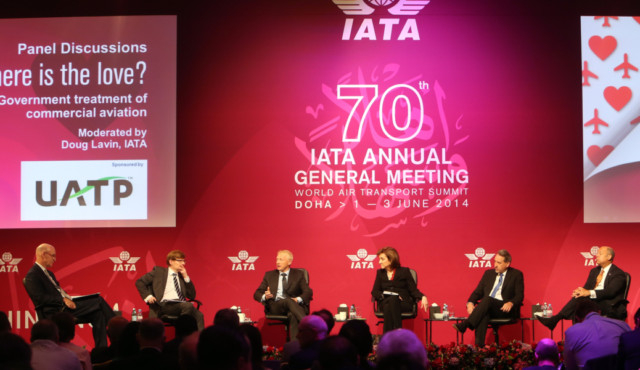
Doha
The International Air Transport Association (IATA) said on Tuesday that airlines are pivoting their business models towards consolidation with other international carriers.
Tight margins of just 2.4 per cent in 2014 and dense global competition means airlines are increasingly adjusting their approach of traditional national-centric go-it-alone [carriers].
Qatar Airways is in negotiations to launch a joint-venture partnership with British Airways on the Doha-London Heathrow route that will feed traffic into each others’ networks.
Willie Walsh, chief executive of the International Airlines Group (IAG), the parent company of British Airways, declined to put a time frame on sealing the partnership but said “discussions are ongoing”.
He confirmed that British Airways would not fly beyond Doha meaning that the airline will keep Asia as its Australia-bound stopover.
Emirates launched a similar partnership with Qantas last year that saw the Australian airline end its 17 year partnership with British Airways and move its London-bound hub to Dubai.
“I’m very happy with it (the partnership) … we carry a lot of Qantas passengers,” said Tim Clark, Emirates President, in Doha on Monday.
Etihad Airways, meanwhile, has had its own strategy of making sizeable investments in a number of carriers from Australia to Ireland. James Hogan, Etihad’s President and Chief Executive, has repeatedly said that these investments are a part of a strategy to drive traffic into the Abu Dhabi hub that the decade-old carrier operates from.
“That’s a strategy that takes quite a bit of capital and not all airlines have the capital,” Tony Tyler, IATA director general and chief executive, told a media round-table in Doha, Qatar.
Etihad recently increased its stake in Virgin Australia, injected fresh capital in Air Berlin and is moving on a potential investment in Italy’s Alitalia.
“It’s clearly a strategy to pay off in the long term but may not pay off in the short term,” Tyler said.
Etihad’s strategy has come under scrutiny by the European Commission, which has said it is looking into foreign holdings in a number of European airlines.
Tyler said structure of the industry, built on sovereignty and traffic rights, is a “huge obstacle towards rational” of consolidating.
Etihad is also looking at a potential joint-venture with Air France-KLM to intensify the relationship beyond the existing code-share.
“We are targeting to build a revenue-sharing system between the two companies,” said Alexandre de Juniac, Air France chairman and chief executive.
Consolidation, through minority holdings or joint-venture partnerships, can offer massive windfalls. Etihad has moved with its self-proclaimed “equity alliance” on joint aircraft orders.
This trend of has also been seen among competitors when Emirates and Qatar Airways announced joint aircraft orders at the Dubai Airshow last November.










